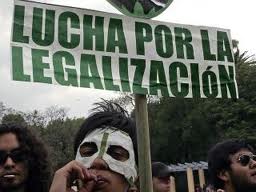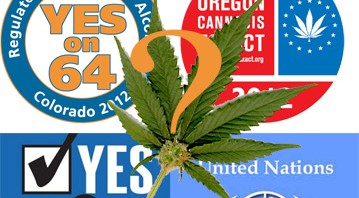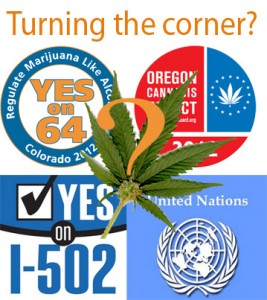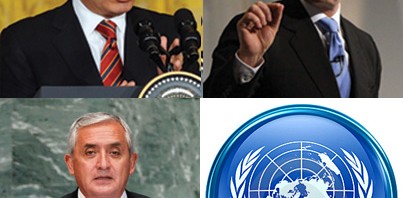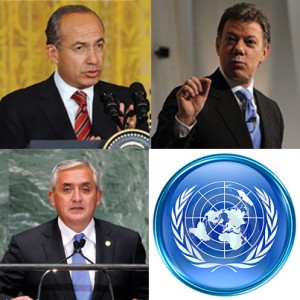10 days before election-day, the marijuana legalization initiatives are slipping in the polls; Washington I502 is still ahead, but support is softening; Colorado 64 is in dangerous zone; Oregon Measure 80 is trailing badly. We need a general mobilization of the drug policy reform activists. We need unity, not internal infighting.
I urge the marijuana activists who are OPPOSING the marijuana legalization initiatives in Washington or Colorado to reconsider their position.
Will these initiatives grant all the policies on the activists’ wish list? No, they won’t! But it will be a vast improvement over the existing regulations, which are medical marijuana in both states, just like medical marijuana is an awkward compromise, but that is vastly preferable to prohibition. With the Washington and Colorado initiatives, the medical marijuana will lose the tax-free easy profits it has been enjoying in the legal grey-zone where it has been operating for the past few years. On the other hand, it will reduce the fear of the Feds, the raids in the wee hours of the day, the drug squads knocking down your door in your sleep. It won’t eliminate the threats from the fed, but instead on fighting on your own, the state will fight for the industry, which makes a huge difference.
Yes, the initiatives on the ballot have restrictions that are questionable within the activists’ community. Could the initiatives be less restrictive? For an answer, let’s look at the polls: I502 in Washington is the most restrictive of the three initiatives on the ballot. It is the one with highest polling and the only one with a very good chance of passing. Amendment 64 in Colorado is not as restrictive but is in a thigh race and sagging support as we get closer to election-day. Measure 80 in Oregon, which is the closest to the marijuana activists’ wish-list is trailing badly in the polls and stands little chance of winning. It is quite clear that with all their flaws, the initiatives are already pushing the limits of what voters are willing to accept.
The lessons we can draw here are quite clear: the general public might be ready for some restrictive form of marijuana legalization under tight control, but is not ready for more lax policies. In particular, the public wants reassurances on protection of minors and driving under the influence. The public wants to make sure that we do not replace bad policies with even worse policies. Last but not least, drug prohibition has been going on for over 100 years, marijuana prohibition for 75 years. For all that time, the public has been bombarded by a constant and sustained barrage of propaganda, depicting drugs in general and marijuana in particular as evil and worse. It will take a long time to undo the effects of a century-long propaganda machine. We need incremental steps to reassure the public that the sky will not fall after marijuana legalization. The public has legitimate concerns about the children and youths and will not accept alternatives that do not restrict underage access. The current medical marijuana laws in California for instance, have provoked serious backlash as dispensaries were popping up all over the place, especially around schools, with hawkers peddling marijuana cards on street corners.
Finally, legislations are not written in stone; they change and evolve, as we are currently witnessing. Alcohol regulations were quite restrictive when prohibition was first lifted, and have become increasingly lenient as time goes by. The same will happen with marijuana regulations if we ever get to end prohibition.
Bottom line: Do you prefer to fight from a purist, principled position that doesn’t stand the slightest chance of ever winning enough support, or are you ready to settle on a reasonable compromise that can move the debate to the next step?
Jeffrey Dhywood
Investigative writer,
Author of “World War D – The Case against prohibitionism, roadmap to controlled re-legalization”
“World War-D” on Amazon: http://www.amazon.com/dp/0984690409/
www.world-war-d.com
Facebook page: http://www.facebook.com/worldward
Twitter: @JDhywood
jd (at) world-war-d.com






